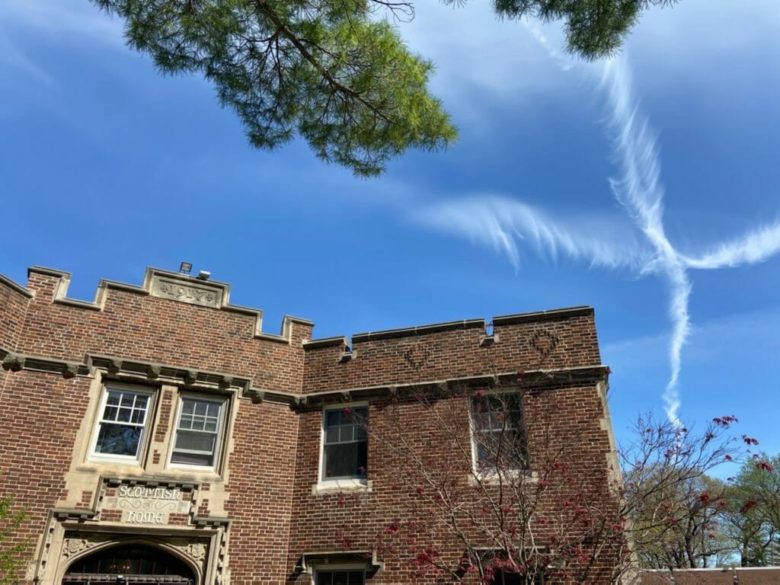The head of an Illinois senior living and memory care community said the community has remained COVID-19-free due to the vigilance of staff, a little bit of luck and the grace of a higher power.
As Caledonia Senior Living & Memory Care, the primary charity of the Chicago Scots and the oldest nonprofit organization in Illinois, cautiously prepared to reopen, Chicago Scots President Gus Noble said it was a daunting decision that weighed heavily on him.
After seven weeks of continuous weekly testing returned all negative results for the virus, the community moved to Phase II of a tiered system of reopening in mid-June. Caledonia set up a drive-through testing model outside of its legacy building, with a nursing team running tests on every employee or agency staff member returning to the community for the first time since the campus locked down.
“I pulled my car up and parked in front of the Scottish Home. I walked to the front doors and looked up and saw the clouds,” Noble said. The clouds were in the shape of a white X above the 100-year-old building. “I immediately thought to myself of St. Andrew, the patron saint of Scotland, and the Saltire, the cross he was crucified on and that is depicted in the flag of Scotland.”

In 832 AD, Scottish King Angus was going into battle with a smaller army against a larger army of Saxons. The night before the battle, St. Andrew appeared in a dream telling King Angus to look for him the next day and he would lead the Scots to victory. As the Scots prepared for battle, the clouds formed a white X against the blue sky and inspired the Scots to victory. The symbol became the flag of Scotland.
“It stopped me in my tracks when I saw the same thing,” Noble said, adding that his full name is Angus, but he goes by Gus. “I was moved to believe that just as it was a good omen for Scotland and King Angus, it was a good omen for us.
“It reminded me why St. Andrew is so important. It was a good omen that by staying true to our principals and the things we’ve delivered for 175 years, we will prevail and get through this crisis and continue to be a safe, small community that has an impeccable record of safety.”
Caledonia has been testing every resident and staff member on a weekly basis since May 4, and no positive cases have resulted. Initially, three staff members and one agency employee tested positive. They all were asymptomatic and self-isolated for 14 days, at which time they tested negative and returned to work. Noble said no residents were affected or fell ill.
Tests are supplied by the Illinois Department of Public Health. Noble said the community’s commitment to testing everyone regularly and routinely was important in keeping the virus from invading the community.
“When we learned about how quickly this would spread and how vulnerable seniors are to the ravages of the virus, we wrote to the governor and said, ‘We need your help to provide PPE and testing,’ ” Noble said. “We recognized we needed to make a commitment to regular and routine testing as well as targeted testing. It was part of a plan we put together that was to be informed by certainty rather than speculation.”
Under its Phase II, Caledonia Senior Living is allowing additional employees onto the campus, admitting new residents, allowing limited outdoor family visits and resuming small-group communal dining and exercise classes. Noble said that despite the restrictions and shelter-in-place arrangement for some time, the community “made good” on delivering life’s most important things: home, family and love.
Caledonia “linked elbows” with other senior living communities — Cantata Campus Services, Plymouth Place Senior Living, Central Baptist Village, King-Bruwaert House and The Admiral at the Lake — to share information, supplies and lobbying efforts, Noble said, because everyone faced the same difficulties in accessing PPE and resources..
“Our voices are louder and heard by more if we speak in harmony,” Noble said, adding that the teams continue to share strategies, tools, supplies and systems to support a combined 800 employees and more than 1,200 residents.
The community’s philosophy remains “If we overreact to this crisis, we will probably never know. But if we underreact, we will know immediately,” he said.
